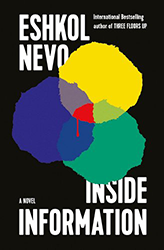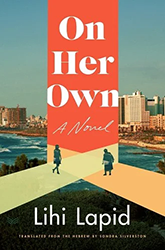Amos Oz returns to his roots: the kibbutz of Israel’s second decade. It was a time when Israel struggled to build a state and to merge socialist ideals with the realities of daily living with real people; the Jewish nature of the Jewish state and the challenges of borders and populations lie decades in the future. Oz presents us with eight short stories — any one of which could stand alone — which are intricately interconnected.
Oz introduces us to Yoav Carni, who had been the kibbutz’s first baby and grew up to become the first secretary of the kibbutz to have been born there. Like every member of the community, he takes a turn serving guard duty at night. Oz describes how he enjoys the peacefulness of that role in contrast with the politics of his day job. He encounters a woman who is leaving her husband in the middle of the night, and their interaction goes beyond the simple solving of a family problem, painting broad-stroke images of the life of the community and its struggles through the lens of two people.
We see the life of individual kibbutznikim, their joys and sorrows, their triumphs and failures. We feel the pain of a father who leaves things unsaid and the frustration of a utopian idealist who wants to teach everyone to speak Esperanto. Together they become interwoven strands of a tapestry that beautifully portrays a snapshot of a fascinating period in our people’s history. This may not be the most important book Amos Oz has written, but it is among the richest in terms of character and imagery, and one of the most enjoyable.




